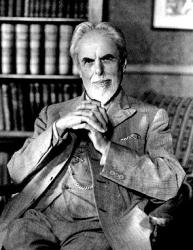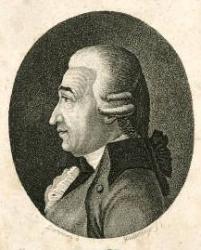
1865 - 1959 Person Name: L. H. Hymnal Number: 142b Translator of "O Christ, our joy, to whom is given" in The English Hymnal Housman, Lawrence, author and artist, was born July 18, 1867, at Bromsgrove, Worcs. His devotional poetry is principally in his Spikenard, 1898, and Bethlehem, 1902. To the English Hymnal, 1906, he contributed eight translations (142, 188, 191, 228, 229, 230, 231, 234); also three original hymns, with a fourth previously published, viz.:—
1. Lord God of Hosts, within Whose hand. St. George.
2. The Maker of the sun and moon. Christmas. From Bethlehem, 1902, p. 75.
3. The Saint who first found grace to pen. St. Mark.
4. When Christ was born in Bethlehem. Holy Innocents. [Rev. James Mearns, M.A.]
--John Julian, Dictionary of Hymnology, New Supplement (1907)
==================
Born: July 18, 1865, Bromsgrove, Hereford, England.
Died: February 20, 1959, Glastonbury, Somerset, England.
Buried: St. Mary’s, Bathwick, Smallcombe, near Bath.
Housman studied art at the Lambeth School of Art and the Royal College of Art. He had great success as an illustrator, but when his eyesight began to fail, he turned to writing books and plays. He wrote 80 books during his lifetime. He often seemed to fall afoul of the censors, though, for religious and political reasons. A committed socialist and pacifist, in 1907, he helped found the Men’s League for Women’s Suffrage. He was also an honorary associate of the Women Writers’ Suffrage League. His works include:
Jump-to-Glory Jane, by Meredith
Goblin Market, by Christiantina Rossetti, 1893
The End of Elfintown, by Jane Barlow, 1894
Spikenard, 1898
The Sensitive Plant, 1898
Bethlehem, 1902
The Blue Moon, 1904
Angels and Ministers, 1921
Little Plays of St. Francis, 1922
Victoria Regina, 1937
The Unexpected Years, 1937 (autobiography)
--www.hymntime.com/tch
Laurence Housman


 My Starred Hymns
My Starred Hymns




